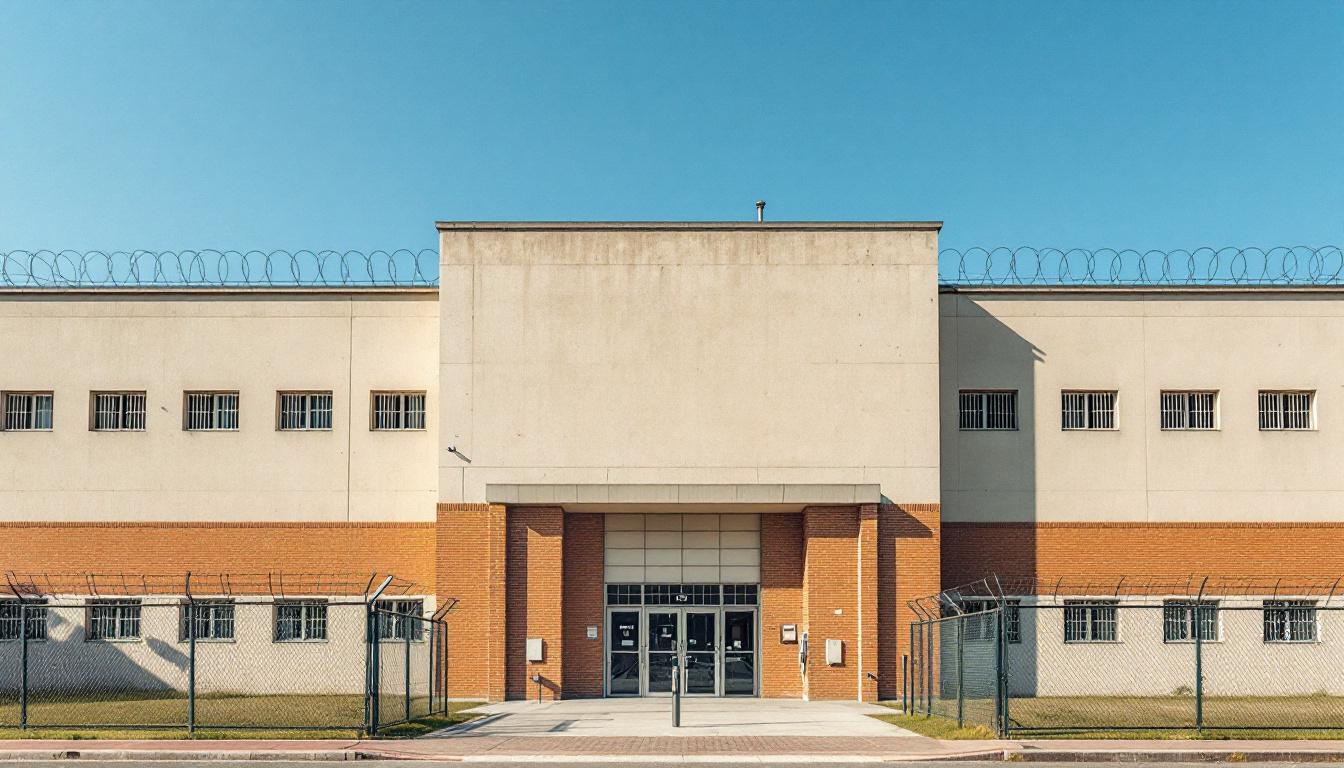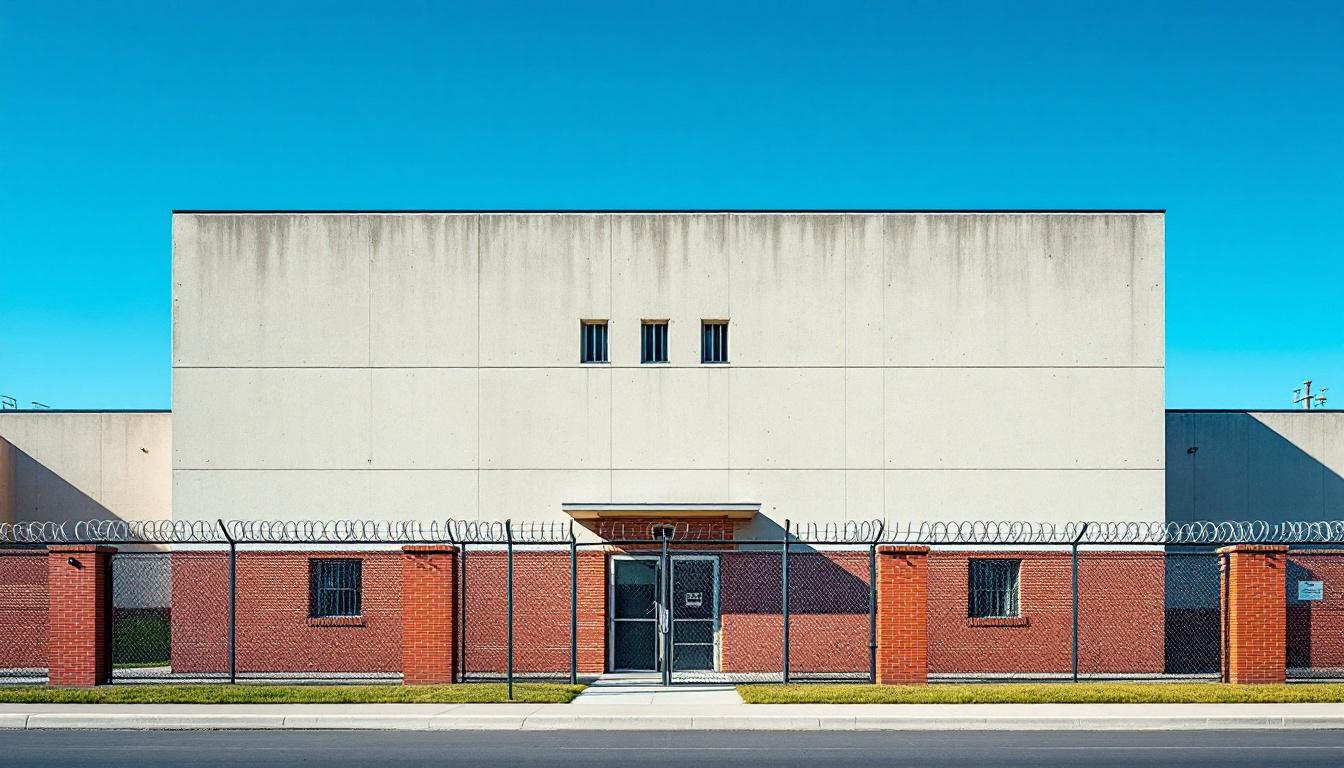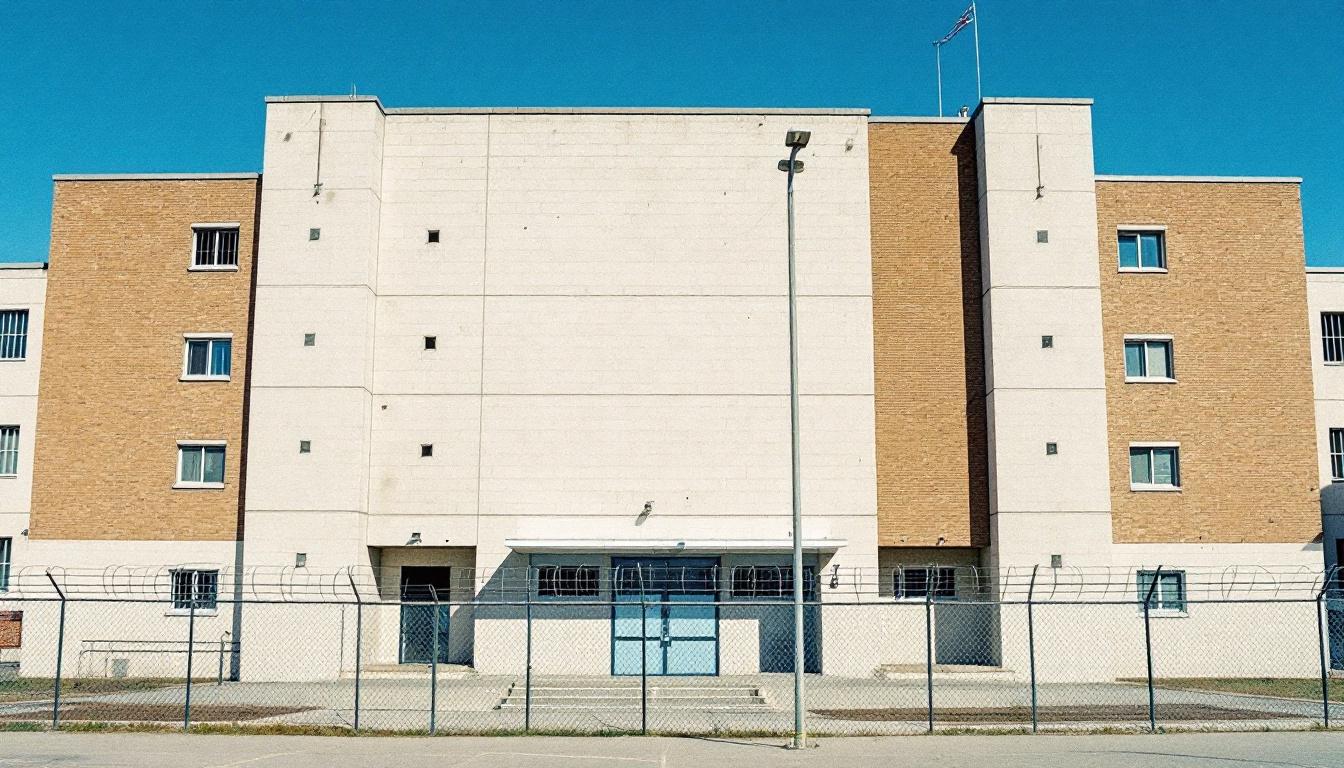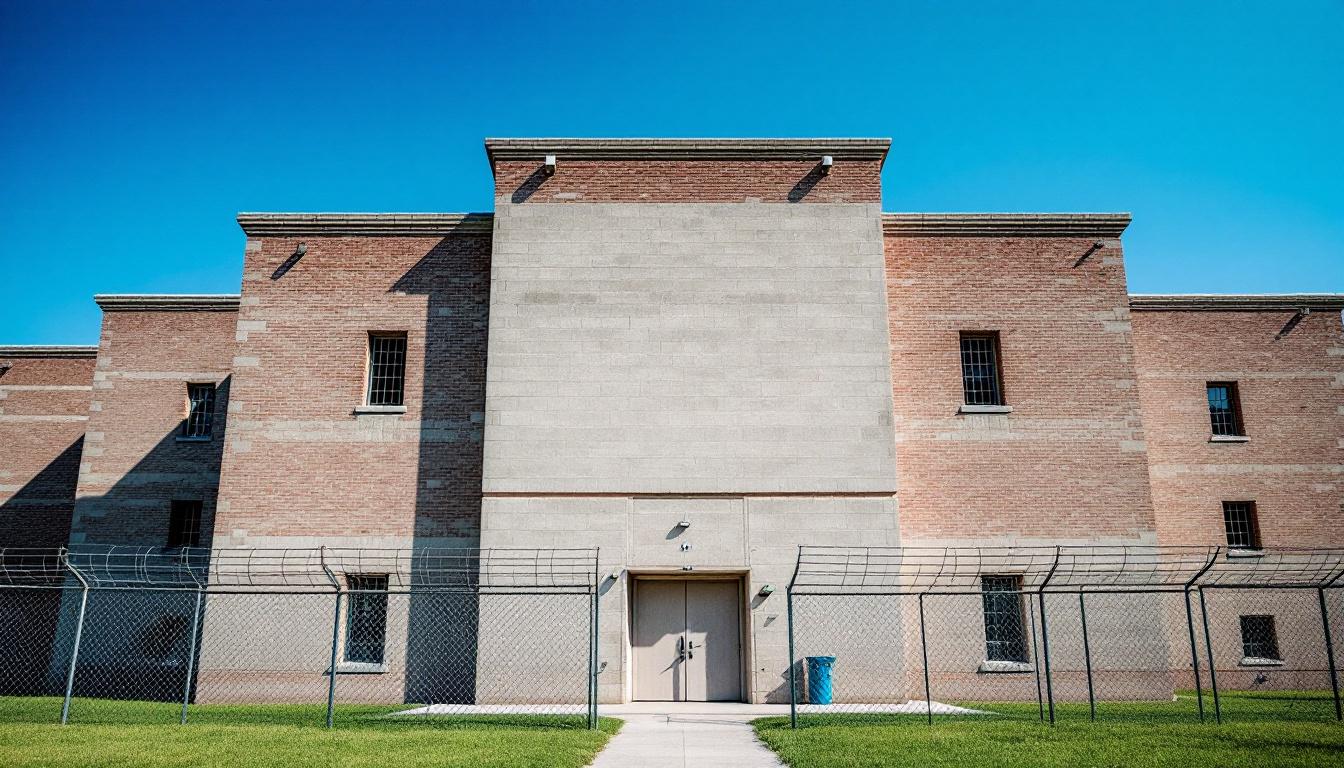
Quick Navigation
How to contact an inmate at Jefferson County Sheriff's Office
This comprehensive guide will walk you through how to connect with an inmate at Jefferson County Sheriff's Office. Follow the steps below to find an inmate and send letters and photos:
- Search for the inmate using our search tool below
- Create your account or log in to Penmate
- Write your message (up to 6,000 characters)
- Send instantly - inmates receive printed copies daily
Find an Inmate
Search for an inmate to start communicating today
Tip: You can search by first name, last name, or inmate ID number
To contact a person at Jefferson County Sheriff's Office start by searching for the person on the facility website. Perform a search by following these steps:
- Step 1: Enter their first name and last name into the search form and click "Search"
- Step 2: Locate their inmate record
- Step 3: Write down their Inmate ID and any housing information provided
Important! Be sure to enter the person's full name. Nicknames should not be used.
How to Send Messages to Inmates

You can use your phone or computer to send emails, letters, and photos to an inmate. Messages are sent electronically to inmate tablets or kiosks at the facility. If you would like to send a message, start by searching for an inmate at Jefferson County Sheriff's Office.
Sending Photos and Postcards

A great way to send love and support to a loved one at Jefferson County Sheriff's Office is to send photos and postcards. It only takes a few minutes to send photos from your phone and it makes a huge difference. You can also mail postcards with words of support and inspiration, or design your own postcard for special moments like birthdays and holidays.
Important! Be sure not to send any explicit photos or they may not be approved by the facility. You can also use a photo printing app like Penmate to make sure your photos are printed at the correct size (4x6 or 3x5) and are mailed according to the rules and regulations of Jefferson County Sheriff's Office.
Frequently asked questions about Jefferson County Sheriff's Office
-
How long does it take to deliver a message?
If you're sending an email message your letter is usually delivered within 24-48 hours. For messages sent via mail you should expect delivery within 3-7 days. All messages will need be approved by Jefferson County Sheriff's Office.
-
How much does it cost to send a message to Jefferson County Sheriff's Office?
You can send a message free using your phone or mail a message via USPS for the price of a $0.60 stamp and envelope. You can also purchase credits or e-stamps from services starting at $1.99.
-
What services can I use to contact an inmate at Jefferson County Sheriff's Office?
Penmate
You can use Penmate to send letters and photos to an inmate from your phone. It's an easy way to stay in touch during your loved one's incarceration. Use the inmate locator to find an inmate's location and contact information, then you can send messages within a few minutes.
Securus messaging
Securus may be another option for communicating with an inmate at Jefferson County Sheriff's Office. You can create a friends and family account and purchase credits to send messages. All messages will be reviewed and must be approved by the facility.
JPay
Some county jails and state prisons may support sending messages with JPay. You must register an account with the system, find your loved one, and purchase stamps to send messages. For some locations you can also attach photos.
Smart Jail Mail
You may also check if Smart Jail Mail is available at Jefferson County Sheriff's Office. Smart Jail Mail is operated by Smart Communications and has contracted with some state and county jails. After purchasing credits, your messages and photos are sent to the facility, printed out, and then handed out to your loved one.
-
What is the mailing address of Jefferson County Sheriff's Office?
Mailing address:
Jefferson County Sheriff's Office
765 Justice Center Dr
Dandridge, TN 37725
Phone: (865) 471-6000 -
What are the visiting hours at Jefferson County Sheriff's Office?
Visiting hours at Jefferson County Sheriff's Office vary by housing unit and security level. Generally, visits are scheduled on weekends and holidays, with some facilities offering weekday visits. Contact the facility directly at (865) 471-6000 or check their website for the current visiting schedule. Visits typically last 30-60 minutes and must be scheduled in advance.
-
What items are prohibited when sending mail to Jefferson County Sheriff's Office?
Prohibited items typically include: cash, personal checks, stamps, stickers, glitter, glue, tape, staples, paperclips, polaroid photos, musical or blank greeting cards, hardcover books, magazines with staples, and any items containing metal or electronics. Only send letters on plain white paper with blue or black ink. Photos must be printed on regular photo paper (no Polaroids). Always check with Jefferson County Sheriff's Office for their specific mail policies.
-
How do I send money to an inmate at Jefferson County Sheriff's Office?
You can send money to an inmate at Jefferson County Sheriff's Office through several methods: 1) Online using JPay, Access Corrections, or the facility's approved vendor, 2) Money orders mailed directly to the facility with the inmate's name and ID number, 3) Kiosks located in the facility lobby, or 4) Over the phone using a credit or debit card. Fees vary by method, typically ranging from $2.95 to $11.95 per transaction.
-
Can I schedule a video visit with an inmate at Jefferson County Sheriff's Office?
Many facilities now offer video visitation as an alternative to in-person visits. At Jefferson County Sheriff's Office, video visits may be available through services like Penmate, Securus Video Connect, GTL, or ICSolutions. Video visits typically cost $10-20 for 20-30 minutes and must be scheduled in advance. You'll need a computer or smartphone with a camera and reliable internet connection. Contact the facility for their specific video visitation policies and approved vendors.
-
What identification do I need to visit an inmate at Jefferson County Sheriff's Office?
All visitors must present valid government-issued photo identification such as a driver's license, state ID, passport, or military ID. Minors must be accompanied by a parent or legal guardian who can provide the minor's birth certificate. Some facilities require visitors to be on the inmate's approved visitation list, which may require a background check. Contact Jefferson County Sheriff's Office for specific ID requirements and visitor approval procedures.
-
How can I find out an inmate's release date?
To find an inmate's release date at Jefferson County Sheriff's Office, you can: 1) Use the online inmate search tool if available, 2) Call the facility's records department, 3) Contact the inmate's case manager or counselor, or 4) Have the inmate provide this information during a call or visit. For privacy reasons, some facilities only release this information to immediate family members.
Facility Overview
Contact Information
Jefferson County Sheriff's Office765 Justice Center Dr
Dandridge, TN 37725
Phone: (865) 471-6000

About Jefferson County Sheriff's Office
Nestled in the historic town of Dandridge, Tennessee, along the shores of Douglas Lake, Jefferson County Detention serves as a vital component of the region’s correctional infrastructure. This TN correctional facility operates with a dual commitment to maintaining secure custody while fostering meaningful opportunities for personal growth and community reintegration. The facility typically houses individuals awaiting trial, serving shorter sentences, or participating in various court-ordered programs, reflecting the diverse needs of the local justice system.
The detention center generally emphasizes a balanced approach to corrections, recognizing that effective rehabilitation often begins during the earliest stages of an individual’s involvement with the justice system. Residents services may include educational programming, substance abuse counseling, and vocational training opportunities designed to address underlying issues that contribute to criminal behavior. These programs typically focus on developing practical skills and coping strategies that can support successful reintegration into the community upon release.
Jefferson County Detention’s location in Dandridge provides comprehensive advantages for maintaining family connections, as the facility often facilitates visitation and communication programs that help preserve important relationships during incarceration. The staff generally works to create an environment that balances necessary security measures with respect for human dignity, understanding that positive interactions and structured programming can significantly impact an individual’s likelihood of successful rehabilitation and reduced recidivism.
Programs & Services
Educational advancement and personal development form the cornerstone of rehabilitative initiatives at Jefferson County Detention, where a comprehensive approach addresses the multifaceted needs of residents seeking to rebuild their lives. The facility’s philosophy centers on providing meaningful opportunities that foster both intellectual growth and practical skill development, recognizing that successful reintegration requires a foundation of education, vocational competency, and emotional stability. Through carefully structured programming, residents may engage with services designed to address educational deficits while simultaneously developing the interpersonal skills necessary for productive community participation.
Academic instruction typically encompasses basic literacy and numeracy support, alongside GED preparation services that enable residents to achieve fundamental educational milestones. These educational initiatives often include computer literacy training and basic academic coursework delivered through structured classroom environments. Moreover, vocational programs may offer hands-on training in practical trades and employment skills, providing residents with marketable abilities that enhance their prospects for sustainable employment upon release. Such programming frequently incorporates job readiness workshops and interview preparation, ensuring that participants develop both technical competencies and professional presentation skills.
Therapeutic and spiritual support services complement the educational framework through conflict resolution workshops that teach residents effective communication strategies and anger management techniques. Faith-based programs may deliver spiritual guidance and community support for those seeking religious or moral development during their incarceration. Moreover, restorative justice initiatives often include victim impact awareness sessions and accountability workshops that help residents understand the broader consequences of their actions while developing empathy and personal responsibility. These comprehensive support services typically work in conjunction with the educational and vocational components to create a holistic approach to rehabilitation and personal transformation.
Daily Life & Visitation
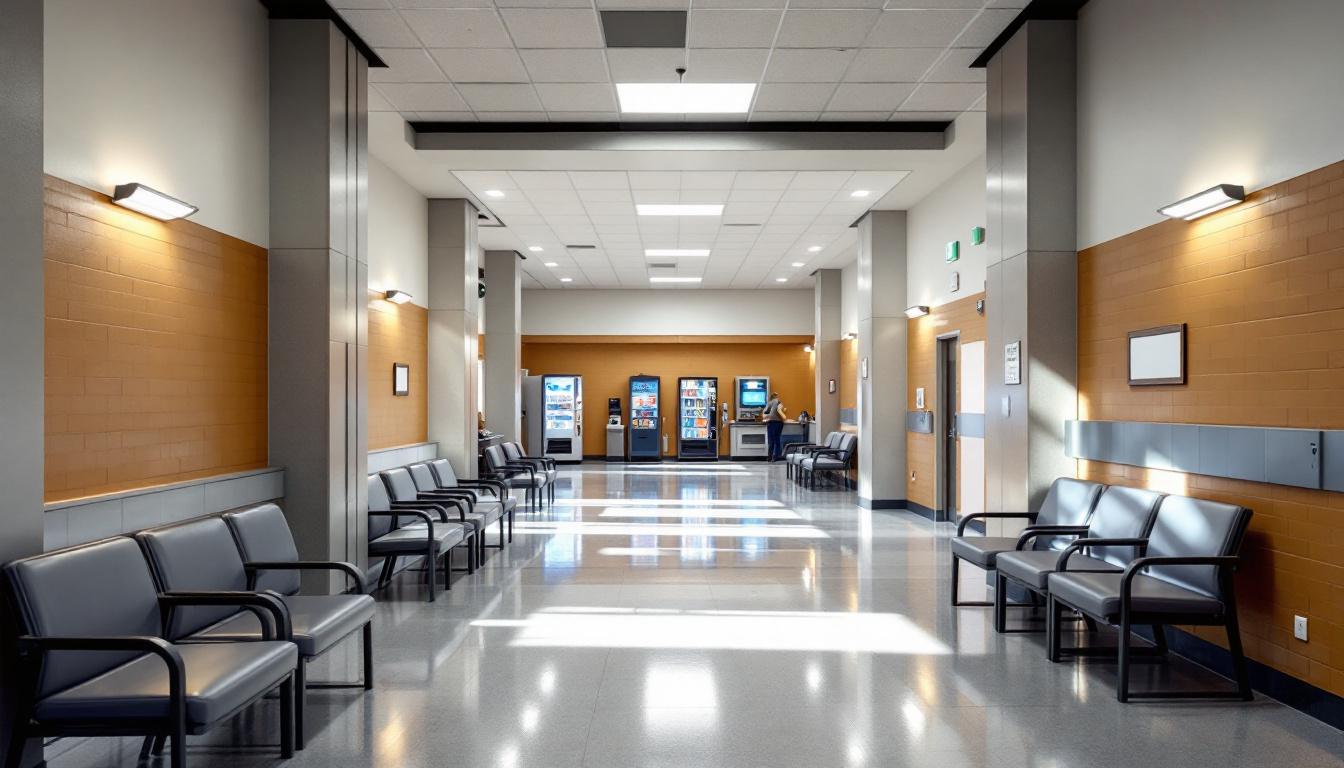
The rhythmic cadence of scheduled activities now shapes each day for residents, with structured routines that typically begin before dawn and continue through evening hours. Wake-up calls generally occur in the early morning hours, followed by facility counts, meal service, and the commencement of various programming activities that deliver stability through predictable patterns. Residents regularly participate in scheduled movements throughout the facility, attending educational sessions, work assignments, or recreational periods that are carefully coordinated to maintain order while providing meaningful engagement opportunities.
Living accommodations at the facility generally consist of housing units designed to accommodate multiple residents, with sleeping areas that typically include basic furnishings and personal storage space for approved belongings. Moreover, residents usually have access to common areas within their housing units where they may interact with others during designated social periods. The dining arrangements typically involve scheduled meal times in designated areas, with residents receiving nutritionally planned meals that meet dietary guidelines, whereas those with special dietary needs or medical requirements may receive modified meal plans as determined by facility healthcare staff.
Programming schedules typically deliver a variety of structured activities throughout the week, including educational opportunities, vocational training programs, and recreational periods that may include indoor and outdoor exercise options when weather and security considerations permit. Residents generally have opportunities to participate in work assignments within the facility, which may include food service, maintenance, or administrative support roles that provide structure while teaching valuable skills. Family connections remain important through regularly scheduled visitation periods and communication options that typically include phone privileges and correspondence, helping residents maintain supportive relationships during their time at the facility.
Ready to Connect?
Start communicating with your loved one today
Search for an Inmate

